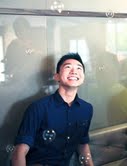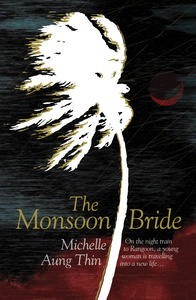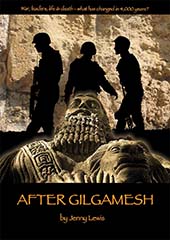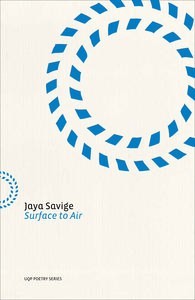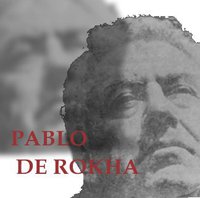 Keith Mac Nider is an historian, clairvoyant and grief counsellor who loves living by the sea with his wife and dog.
Keith Mac Nider is an historian, clairvoyant and grief counsellor who loves living by the sea with his wife and dog.
Blue Veined Hand
A friend read her poems to me the other day. Beautiful, deft, cultured verses that rippled across my heart. We sat at a wooden table in her kitchen, coffee cups steaming, a sunny cool autumn morning. I closed my eyes, listened. One image especially moved me, evoked the past from nearly thirty years ago: the image of an old blue-veined hand stretching out to reach a delicate vase.
My mother, Fay, her skin so dry, paper thin as she aged. How it would bleed, that skin. One nick seemed to lead to another, like a sombre medieval procession, bright but pained. The ulcer on her leg, near her ankle, cratered, never completely healed. Visits to the doctor, the same one, the surgery set back from the busy main road. Trees out the front, a path winding to the front door. A fine, early blue stone villa. At St Peters, the Adelaide suburb in which we had first settled.
The cancers that had to be cut out from different parts of her body; others burnt off her face, the wounds erupting into pinnacles, volcanoes, she said, turning away.
We’d always been tanned. Days at the beach. Shek O, Deep Water bay, Stanley, names which flow into me still, remembered and yet at times, unmoored. Black and white photographs of my mother on the beach, white blouse, beige shorts, knees tucked up. No hat. Tropical sun unabated. Others of her in China before the War. Wispy, so young, a wiry attractive woman with a sense of flair. Various men smiling, cigarettes in hand, dapper before the unforgiving advent of war.
As a youth I’d sometimes leaf through these photos, seeking my own roots, trying to find the sap that would moisten the sun baked days of Adelaide summers, life on the dry borderlands of a growing suburbia, relentless in its hunger for more land.
We’d come to Australia to avoid what my parents feared would be a Communist takeover in Hong Kong. During the War my parents had been rounded up by the Japanese in Shanghai and interned with other fellow British subjects and their Allies. There they’d remained, malnourished for three years, cooped up, often ill. Conditions in all camps were bad, resources few and stretched. Weight losses of thirty to forty pounds in the first few months of internment were common. My father kept my mother alive by working in the camp kitchen. He learned how to be a butcher. The most honest person I’ve known, he would sneak small pieces of meat that he’d later feed to my mother. There’d be roll calls where internees might have to stand still in the sun or whatever type of weather, perhaps for hours. Daily life was subject to the caprice of guards, to disease and illness, to lack of privacy, stress, boredom, and towards the end of the War, the danger of Allied bombs going astray. Some people lost hope and gave up; some went mad; some were executed in full view of the rest of the internees. Many of my mother’s health problems started here.
In the late 1950’s a number of family friends and my father’s work colleagues decided to leave Hong Kong and settle elsewhere. England was the preferred destination and New Zealand also figured. My parents chose Adelaide in South Australia because of its hills. My mother especially could not bear the thought of living somewhere ‘flat’. Flatness for her meant entrapment in a featureless plain. Mountains and hills could provide a backdrop, a place which could contain urban growth, could act as a way of positioning her in the world. They were landmarks, invitations to move into another world too, the world of fields and trees, the green wonder of nature.
Adelaide was also less densely populated that Melbourne or Sydney. My parents dismissed Bideford in England as too cold and Nelson in New Zealand (the last of their three choices) as too isolated, too far away from what they had known.
My mother and I struggled the most with the Adelaide heat, with our house which became ‘like an oven’ in summer. Then the heat would be unrelenting. It seemed to bore in, swirl, settle like a blanket, at once claustrophobic and dulling. The kitchen became a place of tyranny and burden for my mother. There was no window in the kitchen; the trapped heat thickened. On hot days the back door would be closed as the heat swept in with the hot northerly winds. We’d come from a humid climate where fans might be enough, but here we’d put bowls of water in front of fans. I’d wet a handkerchief and tie it around my neck, put ice cubes in them as well, or rub ice on my wrists, my mother’s forehead.
Her body, increasingly thin, became a whisper of itself. Her dark hair thinned, became flecked with grey. She rarely complained about pain. Some days she’d put on records on our battered record player, or turn up the radio, tilt her head in such a way I’d know she was feeling sentimental. She loved the music of Louis Armstrong, his signature tune, ‘Hello Dolly’, and would click her fingers in tune with his song, or to Perry Como, other crooners. She’d reminisce about her days in Shanghai, the years before the war, the Bund, International Settlements, the all night clubs; hit tunes, hawker food on the way home. Yummy she’d call my Dad then. They’d dance together in our tiny kitchen, swish past the chairs and table, in rare moments of closeness. I’d relax into that, another side of my parents, my father’s tenderness, sometimes join in, dance with my Mum, I, increasingly taller, my mother, just under five feet inches.
Silent stories curled in cigarette smoke drifting across the room.
In later years the pills gathered around her, various medications, some working against each other, bottles of them that she carried from room to room. Stacked up on the coffee table near the sofa where she’d lay, TV on, eyes closed, ashtray nearby.
Slowly, even the booze let go of. No more those regular afternoon drinking sessions, cheap wine, first from casks, then bottles, beginning in the kitchen, moving to the lounge, the inexorable steps towards confrontation, conversations like interrogations.
I’d drink too, join in as I moved through my teens. Beers, bourbon, Scotch; more beers. She’d point at me, cigarette always in hand, stab the air with point after question, question after point. Debates would slide into accusations which became slurred into exhaustion and upset, denial, futile rebuttal. At times I no longer knew who I was, feared what I might be, might become. I learned to be more analytical, sharp, knowledgeable, to thrive on studying History and Politics, turning her arguments back on her. Surviving.
Living in the cauldron, I came to call it. Life through a truth serum.
Or she’d sweep me up, her comradeship, uncanny sense of knowing, look at me with pained eyes, as if she were looking through me. She’d pull out playing cards, gather them, tell my fortune. These were no frills cards, worn from use. She would discard all the two’s through to and including the five’s. The six of hearts and six of spades were kept, the six of clubs and diamonds were left out. I didn’t notice at first, the structure of her pack. I was drawn by the mystery, the strangeness, the different capacity of cards, their ability to hold and reflect aspects of life, to be cards that were normally used for games, yet here, unveiled, to be something so much more.
My mother would clear the table I front of her. Perhaps she’d put down a special cloth. She’d shuffle the cards, cut the deck three times, put them back together again, and then lay the cards out in six sets of three. Shed put on her glasses; they’d perch just above a ‘volcano’ from a skin cancer on her nose, draw on a cigarette, put the cigarette down on an ashtray, exhale the smoke. The reading would begin. Bits and pieces of my life plucked out as if from a dream, rearranged, then reinterpreted. She’d ask questions, especially about any girls I’d was interested in. I’d be diffident, casual, shrug my shoulders, eventually break, smile, say yes, mention a name or two. Sometimes she’d raise an eyebrow, reach out for that cigarette, light another, look back at me, thinking, eyes searching. There was always enough in what she said to keep my saying yes when she offered to do a reading. Some occasions in my mid teens I’d say no; she’d ticker her chin out, ask later, the next day.
One day I asked where she’d learned to read cards. And she’d replied, ‘from Jean, my friend, when we were interned’. From the cards the two of them could follow camp intrigues, discover who was going with whom, she continued, before turning over a card, tell me what I was really thinking.
When I was a student at University I asked her to teach me the cards. Months later she told me their most rudimentary meanings. Slowly from that I began over time to build up my own understanding, basic at first, then gradually, deeper and more flowing.
She was unerringly accurate. When I went to clear up the house after she had died, I found a newspaper cutting on her dressing table. It was an advertisement for the very firm of funeral directors – and their exact location- that I had independently chosen.
There’d be games of Mah Jong too, my wife and I, father and mother, playing all night, betting with small coins, laughing, joking, smoking, drinking, with little breaks every now and then for snacks and stretches. We’d start just after dinner and go all night, sometimes until five or six in the morning. These were unbeatable times, a comradeship rarely surpassed. All of us would enjoy the banter, clacking of mah jong tiles, the building of walls, silence of concentration, strategic pauses. I’d listen for the Cantonese and Mandarin names, smile inwardly at my father’s frustrations when he lost as he banged his remaining tiles down on the table; enjoy my mother’s quiet sighs whether she won or lost, her glances at me, one eyebrow raised, when my father, so competitive, got irksome.
Mah Jong was another link with our Asian past. I was captivated by the dragons, the four directions, the design of the flower and season tiles, the different characters, colours, symbols. They became more and more a moving mosaic of sound, form, poetry for me. And, in a quiet way, they introduced my maternal grandmother into my life. She’d returned to her birth place in Devon after the war, introduced mah jong to a small but loyal coterie of friends in Bideford.
Her presence in England became snagged in my mother’s long, critical comments about my father, what she saw as his failings, the decision to leave Hong Kong, the move to Adelaide, the heat, flies, humdrum food (then). The quaint names of North Devon, like Ilfracombe and Appledore, their softer nuances unfolding with visions of green hills, closeness to the sea, became romanticised as lush natural embraces of nature far removed from the relentless heat of Adelaide summers. That I was born in Bideford only added to this longing.
My parents, increasingly isolated, never developing close, deep friendships in Australia that could sustain and ground them here in our new country- and take the pressure of my sister and I.
Cigarettes, Camels, unfiltered, too many. Nicotine stained fingers. Spluttering lighters; searches for matches, boxes of them, Redheads. Trips to delis. More supplies. The poverty we’d fallen into as soon as we stepped off the boat at Outer Harbour. My parents, running down their financial reserves, staying in an expensive City Hotel too long.
My mother, not yet recovered from internment, nearly dying giving birth to my sister right after the War. Looked like a ‘shrivelled apple’ she said, eyes moistening. My sister, born in Melbourne, all of us born in different countries. My parents, leaving Melbourne, settling in Singapore, then back in Hong Kong.
Walking up and down the High Street in Bideford and across the tors past Northam and Appledore, my mother, making certain she’d be fit for my birth. Refusing pain killers. If I was going to die, I wanted to know I was dying, she told me once.
The click of the silver cigarette case, opening, shutting, the Bideford crest on it; another cigarette lit.
Asking me to play golf with my father, par three courses as he got older, after he had retired. Something for him to do, she said. Get him out of her hair. Upsets when I didn’t call or drop around once a week. Smouldering like one of her cigarettes when I moved to England for awhile.
One day I got her a wheelchair, had it delivered. So my father could take her out. I have to get out of the house, she’d cry. ‘I feel trapped indoors, can’t stand it, like a tomb’.
We come from generations of people who’ve moved around the world. On both sides of the family. Traversing. Different countries, continents, new beginnings, ventures, exits, places of no return. My mother, born in Peking (then). Her father, half Belgian, half Scot, born in Dundee, a man who often spoke German and enrolled my mother in a German speaking school in Peking. He and my maternal grandmother met and married in Bideford before moving out to China before the First World War. A skilled tailor, my father did some work for the Imperial family, took photographs for national Geographic, and resolutely drank himself to an early death. I have some of his photographs, deftly framed, pictures of old China, some of Englishmen wearing topis, women in their voluminous dresses, picnic baskets nearby. My maternal grandmother never came to terms living in China. She didn’t learn Mandarin, knew no other dialects.
My Uncle and my mother, at ease with the Mandarin they learned from the amah, using it to keep secrets from their mother. My Uncle, fluent in Mandarin, Shanghaiese, Russian, working on the borders of China and Russia, somehow getting to Australia, joining the RAN, liberating my parents in 1945.
Years later, his death from throat cancer in Hong Kong, us living here, me listening to my mother crying, my father’s efforts to comfort her, hands on her shoulder. Newspaper cuttings instead of a funeral; no grave to visit, funeral to attend, money to travel.
My father, born in Hong Kong, his father American, mother German, brought up by his Uncle after his parents’ early deaths.
Travelling was in the blood. Now it was trips to K Mart and Target, asphalt parking lots. No more walks around Morialta Falls in the Adelaide Hills nearby or holidays in the Flinders Ranges, time by the coast at Robe in the south east.
My wife and I spending weekends cooking food. Going through recipes, determined and dedicated, each cooking a number of meals, chopping veggies and roasting and mixing spices; sometimes my wife’s best friend would join in. Red wine would flow, stain a recipe book or two. Then the long wash up, the half hour drive from one side of town to the other, the familiar road past suburbs and shopping centres, getting closer to the Hills. Chinese food; curries; Brazillian, Caribbean, Korean, Arabic, we all loved food from different places, cultures, far from the Anglo norm. Meals that could be frozen, defrosted, reheated. Meals my father could manage easily.
My mother, shrinking, shrivelling up. She, so invincible, brave, dulled now by pain killers, other medications she didn’t tell us about. Nodding off.
In May 1982 an immense peace came over me, like nothing I had ever experienced. It lasted for several days. My worries about my mother’s health, my own post graduate studies and work, drifted away like clouds called by a different breeze.
My wife and I decided to take a holiday, to drive up to Queensland to see her family, began that long drive up past hay and Goondiwindi.
While we were away, just a day or two later, I heard in my mind my mother’s voice, as clear as day. My wife was driving, so I closed my eyes, saw my mother’s face, smelt the Devon violets perfume she so enjoyed, listened. My mother asked me what I thought, whether she should hang on or let go, die. Time to go I whispered, time to go. Did you say something, my wife asked. Thinking about Mum, I replied, left it that.
When we reached my wife’s brother’s, I knew straight away from his facial expression what had happened.
The peace I had known just before we’d left had presaged her passing. It began the process of opening up my own clairvoyance, a different path, far from the academic path I was then travelling on, something more my own.
You know, my father told me when we flew back to Adelaide, she pulled off her oxygen mask. That’s how she went.
I open a cupboard door, look at some Mah Jong tiles, touch them, run my finger along them, the bamboos and flowers, hear my mother’s laugh, the cough that would invariably follow. I press a tile against my forehead, the green dragon, my mother’s favourite, smile. I have learned to read Mah Jong tiles, can use them as divinatory and spiritual sources of understanding.
I put the tile back, close the drawer, pick up a vase, a Chinese one. It’s been around all my life. Run my hands over it, feel the texture, remember an old blue veined hand reaching out.





